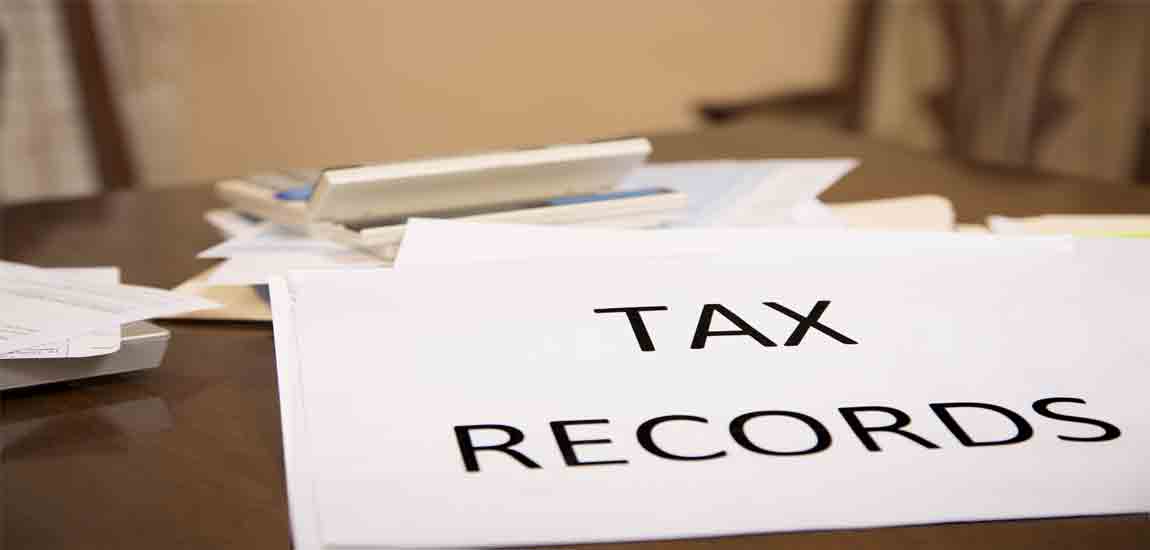


Do you know that you need to maintain, store, and keep your books and tax receipts for years? During these specified periods CRA may ask you to produce the original or a copy of the same. However, there are some reliefs if CRA allows you for early destruction or if you can maintain them electronically as per CRA guidelines.
How long to keep your tax records?
Tax record related compliance in Canada (place, length, and early destruction)
Place of keeping a record
The tax record must be kept at your business place/ residence located in Canada. However, if you want to keep a record somewhere else, written permission must be obtained from Canadian Revenue Agency.
An application with a logical reason to place a record somewhere else in Canada/outside Canada needs to be filed to obtain permission. Upon receipt of your application and review of your situation, CRA may accept your application and provide consent along with written terms to comply.

You may please contact us to process the above application on your behalf, and at the same time, we will guide you through the entire process with our feedback.
Please note that CRA does not provide permission to keep records outside Canada in the case of municipalities, athletic associations, registered charities, housing corporations, and public bodies, etc.
Further, if CRA permitted you to keep your record outside Canada, it must be available to CRA upon request. CRA may permit to keep electronic records outside Canada in the following cases.
1- CRA perceives copies of records provided to them are genuine and not misleading.
2- Copies provided contain sufficient details as support for the return filed.
3- Electronic copies are readable by CRA software.
Electronic record

They should be in an electronically readable format.
The image is created with the intention to reproduce the actual source document.
Controls are in place for the imaging of the source documents.
The taxpayer is responsible that imaging has been done in an acceptable manner.
Lost, damaged records – it is taxpayer responsibility to keep a proper backup, should inform Canada revenue agency immediately, and create the files within a reasonable time.
Period of keeping a record
Generally, you are required to keep a taxation record and supporting documents for six years. The period of six years is counted from the end of the last tax year. The last tax year is related to,
1- Fiscal period (for corporations)
2- Calendar year (for individuals)
3- Various period end (depends on the type of trust)
These rules are similar for a wide range of legislation, including the income tax act, excise tax act, employment insurance act, air travellers and security charge act, and Canada pension plan, etc.
However, sometimes required to retain the record is different based on the situation. Below are the certain situations that trigger changes in the period to keep the tax-related record.

– Supporting documents/tax records need to be retained indefinitely if the transaction is related to long-term aspects of the business like share registry, long-term acquisition & disposal of property, wind-up/liquidation of the business, and the other transactions capital in nature.
2- An email or in-person instructions from CRA officials to keep a record for a longer period.
3- If a tax return was filed late, the record must be kept for six years from the date of filing.
4- If GST/HST return is filed for a period that ended more than six years ago, the six-year retention period starts from the last year when a record may be required for return filing purposes.
5- Details/supports for the adjustment must also be kept for six years from the date of appeal.
6- Details/supports regarding appeal/objection should be kept until the latest appeal/objection is resolved, or a six-year record-keeping period is completed, or the date for filing a further appeal has passed.
7- If the non-incorporated business is ended, it must keep a record for six years from when an organization/business ends.
8- In case of corporation dissolution, the record needs to be kept for two years from the date of dissolution. The record should include all the documents to verify tax obligations and other records the corporations keep.
9- In the case of merger/amalgamation, the tax record must be kept for six years from the end of a tax year in which amalgamation/merger was carried.
10- If you are a legal representative of trust/decreased taxpayer, their record is to be kept until the collection of the clearance certificate.
11- The qualified donee should keep duplicates of a donation receipt for two years; the count starts from the end of the calendar year in which the donation was received.
12- If a registered charity/ athletic association revokes its registration, the record must be kept for two years after the date of revocation.
13- If the registered and incorporated charity is dissolved, the taxation record must be maintained for two years.
14- Political party/official agent/candidate in election needs to keep a full record of the contributions received and expenditure made for two years; the period is counted from the end of the calendar year to which these transactions relate.
Early destruction of the taxation record

Early destruction of the taxation record requires permission from CRA. However, their permission is restricted to legislation it administers. There are two ways to obtain CRA permission that include the following.
1- Make a written application to the tax service office.
2- Complete the form T137 – request for destruction of records.
However, if you destroy the record without CRA’s permission, you might be prosecuted in a court of law.
RKB Accounting has expertise in cross-border taxation and has been providing accounting and taxation services for the last fifteen years in Canada and USA. RKB services include incorporating a business on both sides of the border, bookkeeping, sales tax, payroll, and corporate and personal income tax. RKB’s expertise includes cross-border tax planning, long-term tax planning, helping business start-ups, business structure planning, and resolving complex tax matters. RKB a CPA(Delaware), CA(India), and CIA(USA) has over 25 years of experience in accounting and taxation in dealing with various countries in the world.
Disclaimer: Information in the blog/post/article has been presented for a broad and simple understanding. This is not legal advice. RKB Accounting & Tax Services does not accept any liability for its application in any real situations. You need to contact your accountant or us for further information.